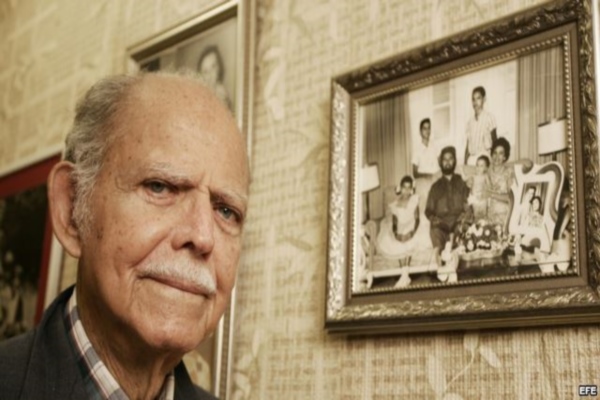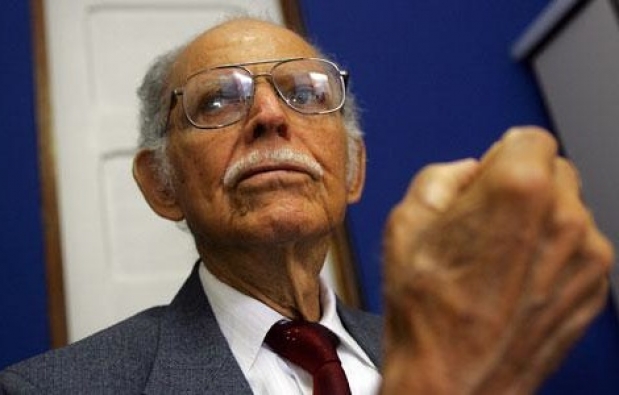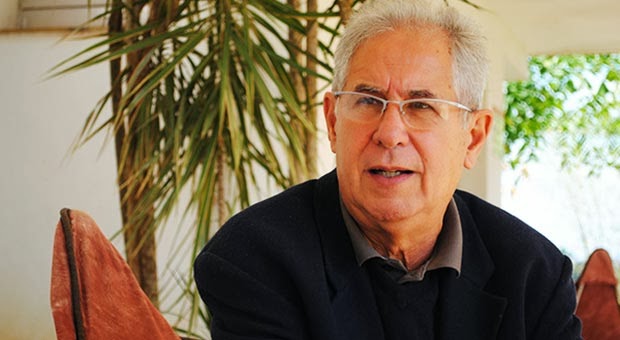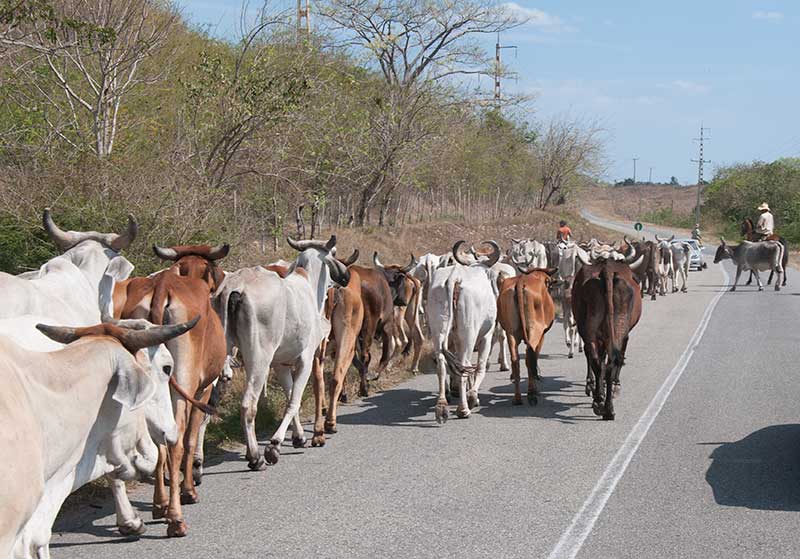Mr. Ruler:
On February 28 I completed one year of unjust imprisonment, after a trial where I demonstrated my innocence with multiple proofs and witnesses. In exchange, the Prosecutor couldn’t present one single consistent proof against me, except the malicious – in addition to being ridiculous – one of an expert calligrapher who, after having ordered me to copy an economic article from the newspaper Granma, the Official Organ of the Communist Party, gave an opinion that the height and slant of my handwriting showed I was guilty.
All this happened four years after the supposed event, where they saddled me with a crime that I didn’t commit. To make things worse, this whole circus that went down against me was corroborated by the henchman Camilo, an official of State Security, long before the Court passed sentence.
Being detained – after a demonstration of support by other compatriots in opposition – this official announced to me before witnesses that I “would be sentenced to five years of privation of liberty,” a declaration that he published on the Internet, one month before the official pronouncement of the Court, an organ that should be impartial, should act independently, but that in addition to clearly following the rulings of State Security, perpetrated another flagrant violation during the judicial trial, upon adding to my penalty one more year than the maximum established by the Penal Code.
My case, like many others, shows that after the coming to power of your family, the Castros, there isn’t even a minimum of independence among the legislative, executive and judicial powers, which exists in all nations that are truly democratic.
These powers are managed by you at your whim and convenience. And history shows that when these powers are manipulated by the same entity, whatever the ideology, we are dealing with a dictatorship, where the only thing left to us is the possibility of interrupting and having influence with our opinions in the fourth power: communication, the news, achieved thanks to the development of the Internet, and to thereby circumvent your iron control on the media. And for that I have been punished. continue reading
Since my incarceration I have been physically and psychologically tortured; on several occasions I have suffered cold in the concrete beds of your cells, beatings from your henchmen, and I have rejected all your proposals that I abandon the national territory or desist from my ideals of freedom for my country.
I want to remind you that before opening my blog, The Children Nobody Wanted, where I only said what I thought about the terrible circumstances of the lives of my people, I was an exemplary citizen who, thanks to the literary talent that God gave me, won prizes and recognition from national and international cultural institutions.
But, General, one day I discovered that the ethical price I was paying to be seen as an exemplary citizen for the totalitarian society that your family has imposed on Cubans was too high for my soul and my time in history. I had to overcome the fear of repression with which the institutions of indoctrination created by your family educated me from my birth.
I decided to overcome the fear implanted by you in the generations of Cubans who have grown up under this failure that you call “Revolution,” and, in particular, the muzzle on the conscience of the artists who mainly pretend to support the socialist process that you command, but later are heard criticizing the Regime under their breath, because, apparently, the Cuban people have preferred to take the easiest, but the longest, road.
This reality of social pretense became for me an insupportable moral burden. I didn’t want to continue doing what they were doing – and still do – this large part of the Cuban generations who have been educated under the law of the cynicism of survival, pretending what they don’t feel.
My conscience lead me to open my blog, The Children Nobody Wanted, and beginning with this event, I signed my death sentence, as your repressors have told me on several occasions.
Expressing a critical opinion as a citizen about the social process that you lead is the only “crime” I have committed, and I accept it.
From this moment I have been prohibited from traveling abroad. They have marginalized me from all national cultural activity, and as a very important detail, just after writing you my First Open Letter, a judicial farce began against me for a crime I supposedly committed four and a half years ago.
Doesn’t this seem like a suspicious coincidence?
Now, one year later, I write you this Second Open Letter, running the risk of unleashing even more your cruelty against me, and even, at the risk of losing my life – although it would be so easy for you to accomplish that, only a snap of your fingers and it would happen.
I urge you to do it, by any of the methods you have applied in more than fifty years of dictatorship against many of those who have opposed your plans: a suspicious terminal illness, an assassination because of a supposed brawl with a common prisoner, or an accidental fall, to cite examples.
Your masters, the Russian KGB and the East German STASI, have taught your stooges well in how to eliminate “enemies” while leaving their guilt on the terrain of speculation.
I assure you, luckily for me, that what I was born to do in this life has already been accomplished, because my ambitions are small. This helped me to decide to change my status, my literary future, what some call “to boycott my fate,” since to sacrifice the well-being and happiness of my children, to limit to the extreme my publications and artistic life, I have done only in exchange for one humble aspiration: that my biography show that I struggled for the freedom of my country and against the dictatorship of my time.
That is enough; it’s sufficient for me.
It only remains for me to add that thanks to you and your repressive machinery, I have learned how much capacity for suffering I can stand; I have verified that ravenous hunger, the cold and the beatings were crushed by the force of my ideals and feelings.
I have seen that it’s worthy to suffer for the rest upon seeing them abused by the power that you hold, hurt by the jailers. I have learned to share the last crust of bread with those I live with in the cells to whom I have been drawn.
I have learned to defend my ideas above the hunger and the illnesses, and I have convinced myself that there is no way of making me change my ideas about what I consider just or about the wide universal right that I have to freedom of expression.
I am grateful for this miserable life to which you and your “humane socialist system” have confined me, because I have grown before every obstacle and, above all, because with each test I have become a better human being.
I have taken advantage of the time to write several books which I have collected in a safe place, and in part of them I describe the terrifying and inhumane reality inside your prisons.
The ideals that I brought with me to prison have been strengthened, they have revived with an unimaginable force. For injustice and impunity, I count on you to this day. For telling the truth without fear of your reprisals, I count on me.
May God forgive you,
Ángel Santiesteban Prats
Lawton Prison Settlement, February 2014
Translated by Regina Anavy
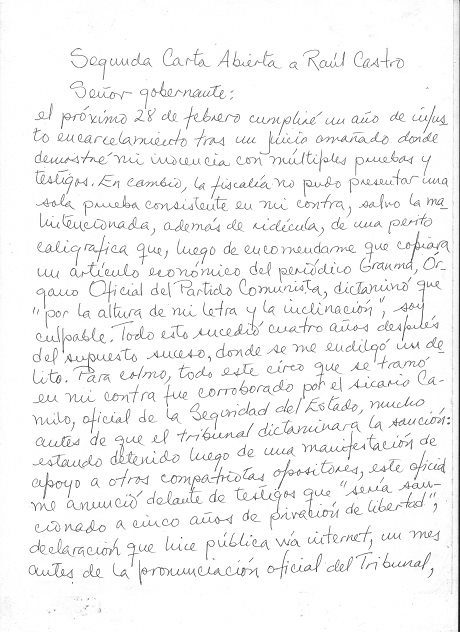


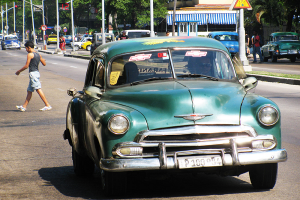

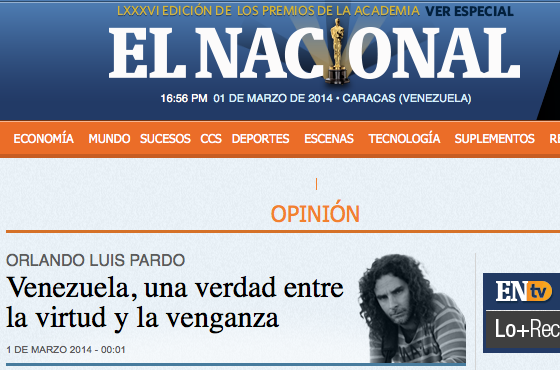
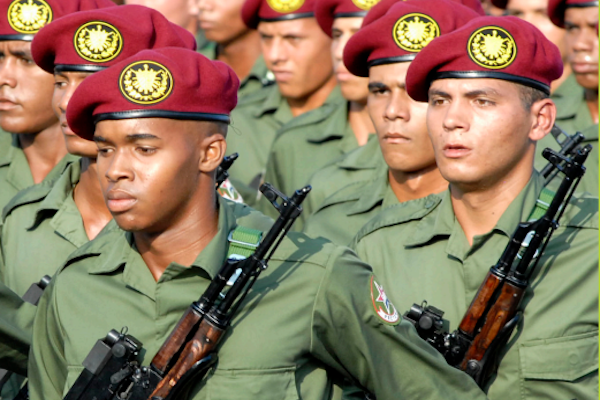
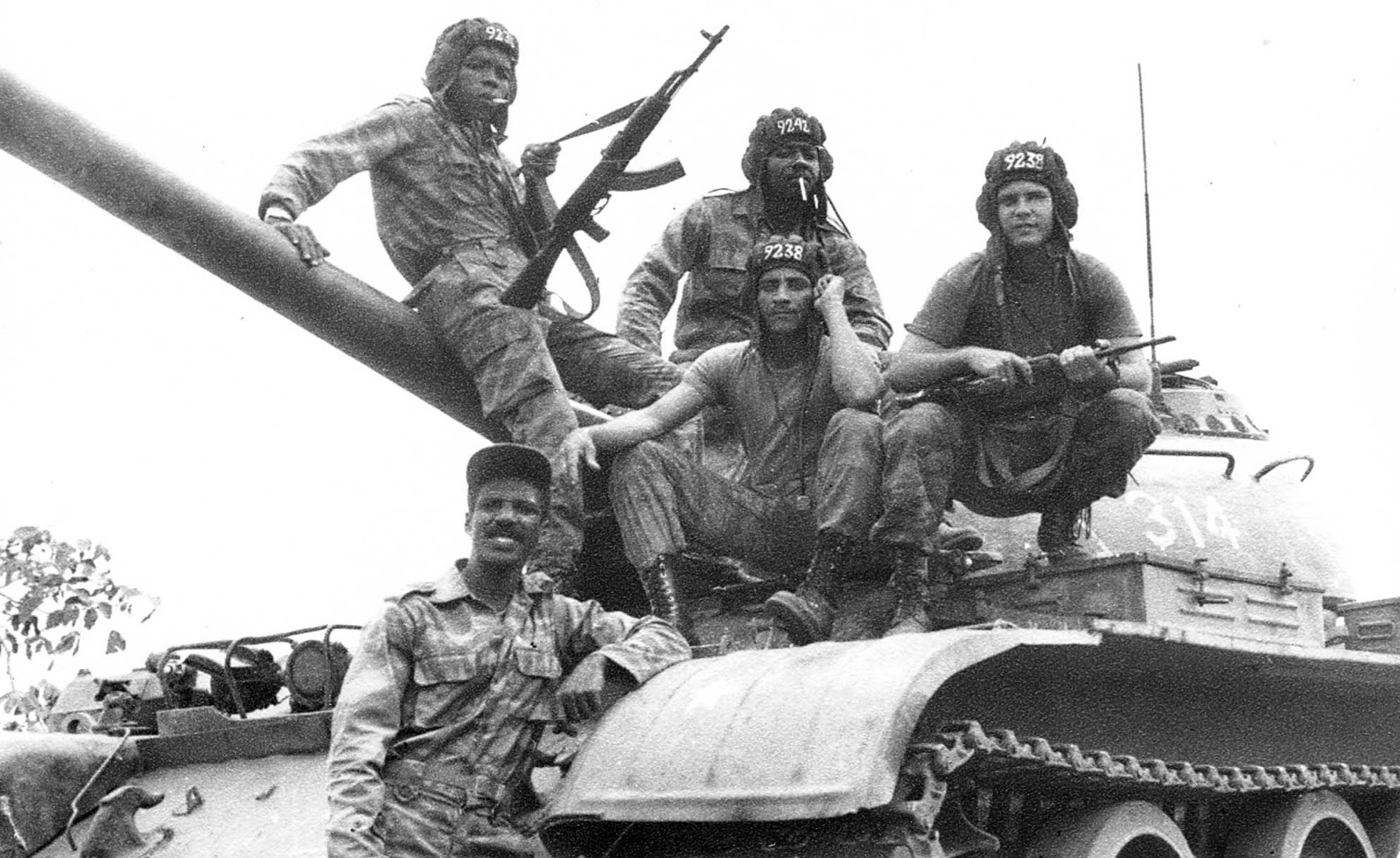


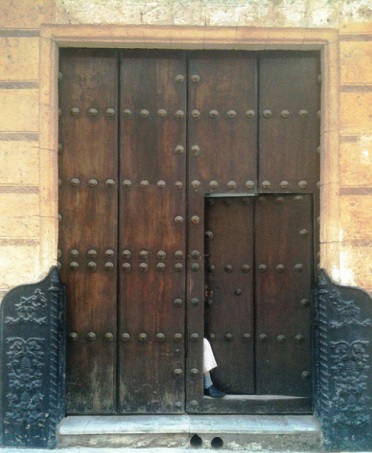
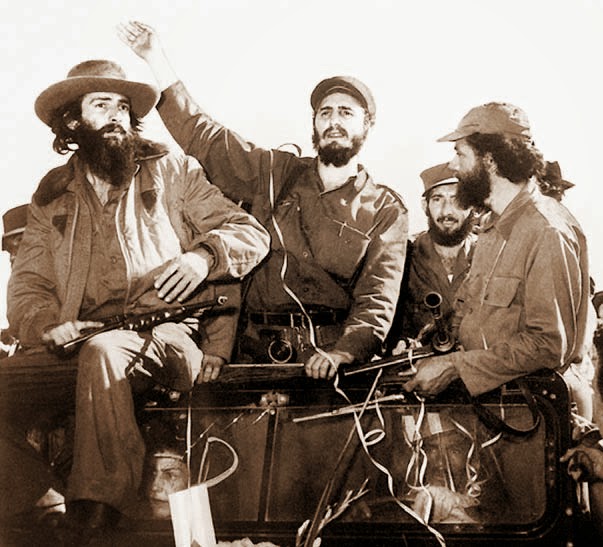
 Dissident blogger completes year in detention
Dissident blogger completes year in detention